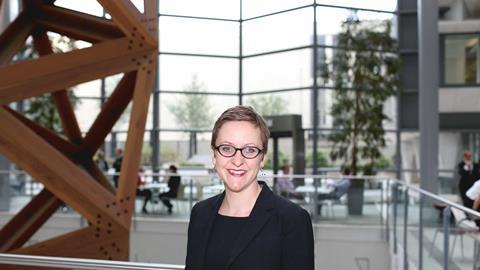Lawyer, criminal law team, legal directorate, Ministry of Justice
Initially I did a non-law undergraduate degree, then spent six years working in the NHS in administrative and managerial roles. I’ve always had an interest in the law so while working in the NHS I took a graduate diploma in law. From there I went to work at the Law Society, investigating complaints against solicitors for four years. During this time I also had three children. Meanwhile I did the legal practice course (in what spare time I had left over).
On leaving the Law Society I began a training contract at a private practice in north London. It was excellent preparation for my legal career because I was given real responsibility from the outset.
I enjoyed working in private practice but hankered for my public service past. I found I wasn’t motivated by financial targets. Also, I didn’t want to specialise in one area of law which is why working in the Civil Service appealed. I was attracted to the variety of law this career could embrace and the idea that I might be able to shape the law, not just interpret it. I also felt that also it would provide me with a better work-life balance.
I work in the Treasury Solicitor’s Department as an advisory lawyer to the Ministry of Justice in the criminal law team. I provide advice, mostly on substantive criminal law – the creation of, and policy around, criminal offences. I recently advised on the policy around ‘revenge pornography’, and I have instructed parliamentary counsel with a view to drafting provisions within the Criminal Justice and Courts Bill to extend the jurisdictional reach of the female genital mutilation offences.
I also advise other departments on their applications to the MoJ criminal offences gateway, which all departments must submit when creating or amending a new criminal offence. I’m the lead adviser on assisted dying (in particular the recent Supreme Court case) and MoJ criminal law interests in the Modern Slavery Bill.
Most days I undertake research and advise policy colleagues on particular legal questions. Where there is an established policy that we wish to change, I might draft instructions to parliamentary counsel with a view to amending primary legislation. I would then sit in parliament during passage of the bill to support colleagues and the minister when responding to questions about the clauses on which I lead.
Being a lawyer within the Civil Service is so different to working in private practice, that they are almost incomparable. While there is no requirement to generate business and bring in clients, there is a need to understand the political imperatives behind the work. It’s a fascinating job. Hardly a day goes by when I don’t hear something on the news that touches on the criminal law and, therefore, on my work. In addition, the questions posed by my policy colleagues often relate to legal issues I’ve never dealt with before. This is something I love but it’s also a major challenge – I’m expected to get up to speed on complex areas of law quickly to give high quality, objective and impartial advice.
My most exciting career moment was sitting in the officials’ box in the House of Lords, supporting the minister while Lord Falconer’s Assisted Dying Bill was debated. The debate lasted all day, was interesting and extremely moving. It was an enormous privilege to be part of it.
































No comments yet